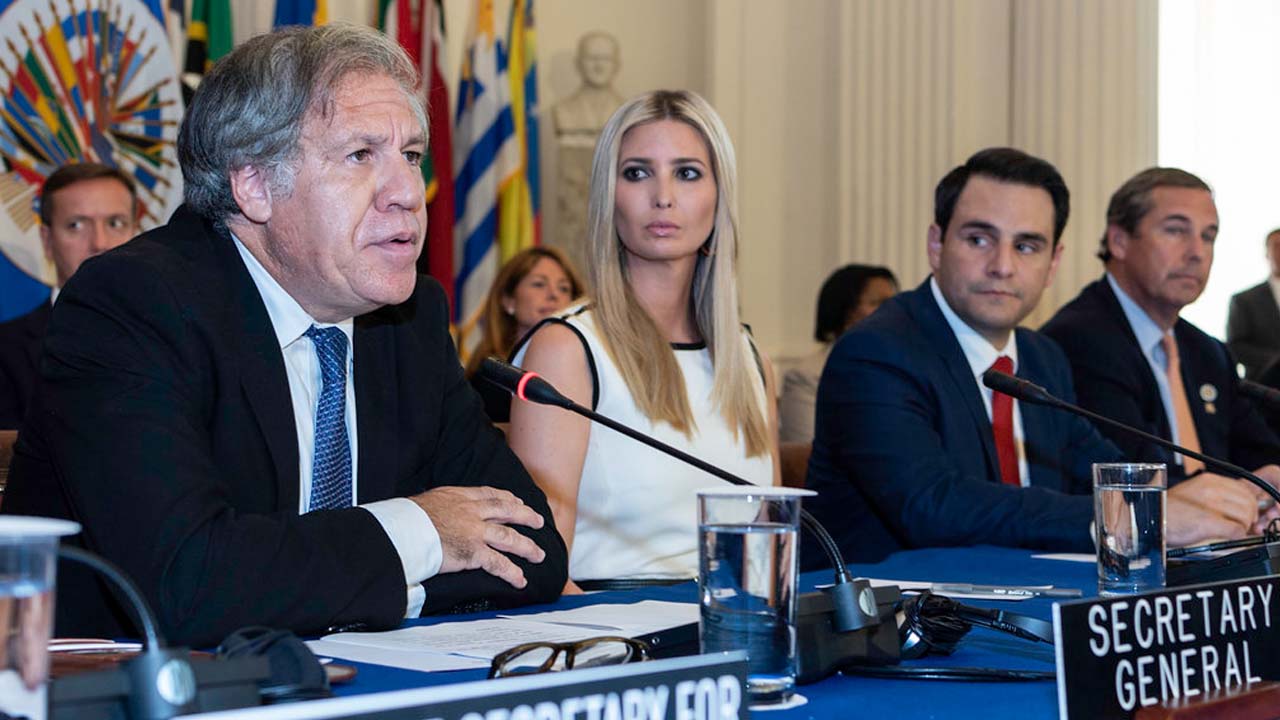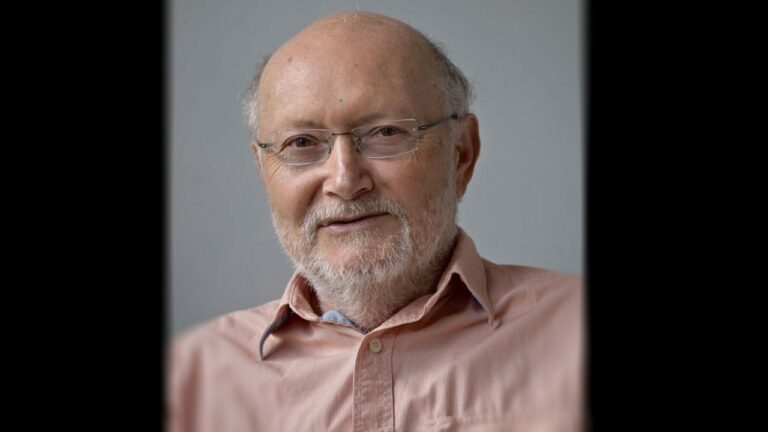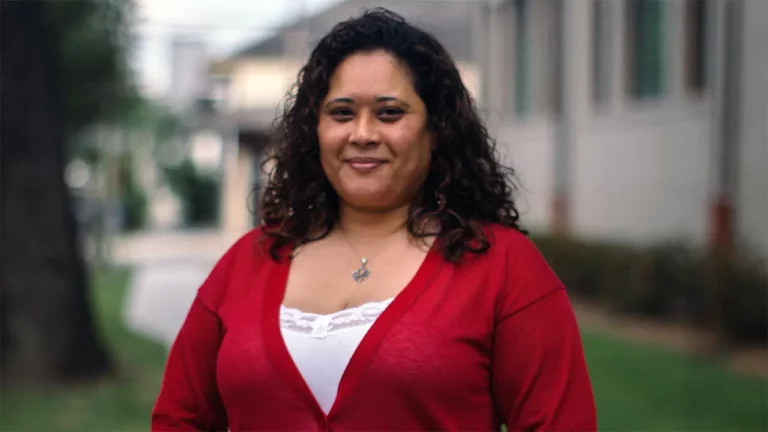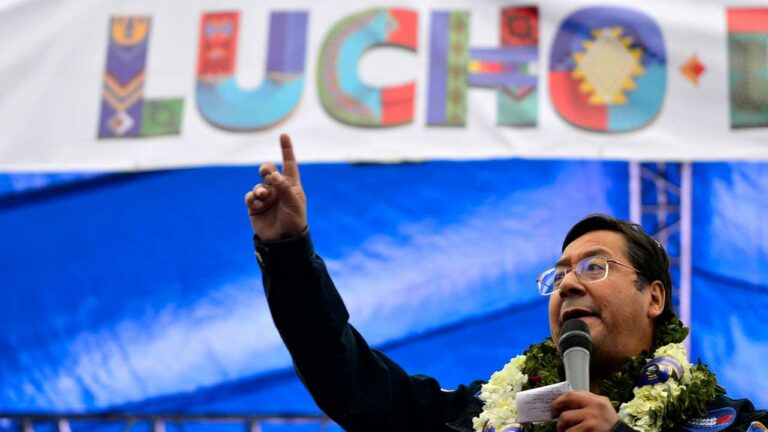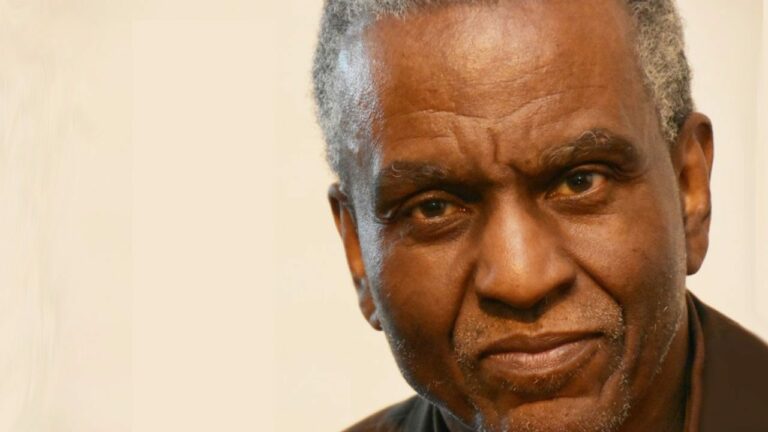Bolivia’s Election Result Embarrasses the OAS Yet Again
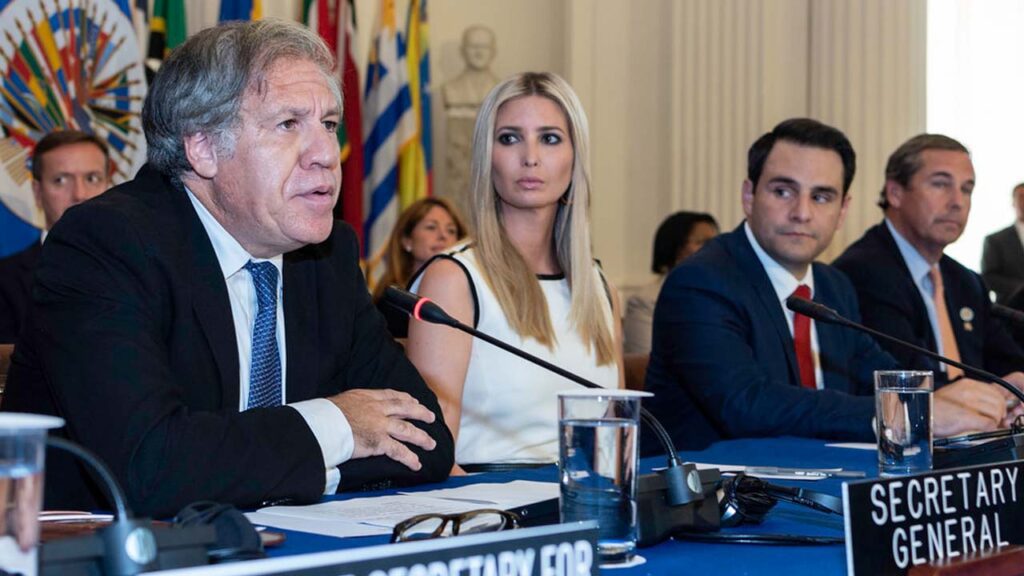
The October 18th presidential election in Bolivia confirms that leftist candidate Luis Arce won the presidency with a solid majority, which puts yet another nail in the coffin of the OAS’s efforts to meddle in Bolivia. CEPR’s Jake Johnston, who analyzed the highly questionable OAS audit of last year’s election, which justified the coup, discusses how this recent result presents a challenge to US foreign policy towards Bolivia.
Transcript
Greg Wilpert
Hi, I’m Greg Wilpert, guest host for theAnalysis.news podcast. Official results from the presidential election in Bolivia last Sunday largely confirm what the exit polls had indicated on the day of the vote; that the leftist candidate, Luis Arce, won with 54.5% of the vote. Arce represents the party movement towards socialism, or MAS in its Spanish initials, and had previously served under Evo Morales as finance minister. Governments from around the world, including the secretary-general of the Organization of American States, Luis Almagro, congratulated Arce on his victory.
The return of Evo Morales’s MAS to power in Bolivia represents a major blow to U.S. foreign policy in the region. The Trump administration had supported last year’s coup against Evo Morales, which had received significant support from the OAS in legitimating the false claim that last year’s October 20th election had been marred by fraud. OAS audits claimed that when the country’s electoral commission halted the publication of the so-called Quick Count, which is not official, it used the opportunity to alter the official results.
A detailed analysis though, by the Washington, D.C. Center for Economic and Policy Research, which was later confirmed by researchers from MIT’s Election Data and Science Lab, showed that there were no statistical irregularities to suggest fraud. Nonetheless, Bolivian opposition supporters, the police, and the military managed to force Evo Morales to resign on November 10th of last year, which then led to a nearly one year reign of repression and violence under the far-right interim president Jeanine Áñez.
And this affected anyone supporting Evo Morales or his party. Two massacres also took place during this time, which killed dozens of indigenous activists. Joining me now from Washington, D.C. is Jake Johnston, who helped conduct the original research into the OAS’s audit of the 2019 presidential election in Bolivia. Jake is a senior research associate at CEPR (Center for Economic and Policy Research). Thanks for joining us at theAnalysis.news podcast today, Jake.
Jake Johnston
Thanks for having me.
Greg Wilpert
So, now that we have the more or less official result, I mean, I think the completely final result isn’t in yet, but I checked the website for the electoral tribunal, and it seems like almost all of the votes have been counted so far. So, now that we know what the official results by and large are, what do the 2020 results tell us about the OAS allegations of fraud in last year’s vote?
Jake Johnston
Yeah, well, I think for starters, I think what it shows is that the coup and a year of repression were not enough to keep MAS, the most popular political party in the country, from obtaining power.
And I think that is the most important lesson from this election. Of course, we did learn a little bit more about exactly what the OAS alleged and how realistic that actually was. And so, one of the major allegations made in that OAS audit last year, and again, that final audit report didn’t actually come out until a month after Morales was ousted from power. But when it came out, they pointed to 226 tally sheets.
These are the records of the vote from individual voting tables within voting centers. They pointed to 226 of these tally sheets in 86 different voting centers across the country, and they said that these tally were evidence of an intentional and systematic effort to manipulate the results. And they pointed out to these tally sheets because Morales received over 90% of the votes there, and because they allege that the tally sheets themselves had been manipulated. Now, when we looked at this audit, we found that the OAS actually didn’t provide any evidence whatsoever that the tally sheets had been manipulated.
And so I think it was already clear to us that this was not legitimate evidence of anything. But the results from this Sunday’s election really make this clear. So what we did was we looked at those 86 voting centers in which the OAS alleged that Morales’s vote share had been inflated in 2019 or manipulated in some way. And in fact, in all but nine of those, the MAS party did even better this year. So these are really small voting centers for the most part, so a small rural voting center with maybe two or three tables, a couple hundred voters at them, and in those places where MAS and Morales got 90% in 2019, they got closer to 95%, 98% even this time around. I think it serves as a really clear indication that there was really never anything to these allegations.
Greg Wilpert
Now, just how important would you say was the OAS’s role in the 2019 coup? And what do you think that the new results and the comparison that we can make now mean for the credibility of the OAS election monitoring?
Jake Johnston
I think the OAS role was critical, and I think the OAS is given a tremendous amount of importance in the hemisphere from its electoral observation missions, right? But when you go back to 2019 and look at this situation, the OAS knew what situation they were going into. Bolivia was a highly polarized situation, and you had leading members of the opposition pledging not to respect the results of the election if Evo Morales won in the first round. They knew that was the case, right? And so when they put out this press release the day after the election, undermining the quality of the results of the election, again, as you mentioned, just of the preliminary results, the non-binding, non-official preliminary results, they knew quite well what the impact of that action would be, and it was seized on almost immediately by these members of the opposition, who I think in many regards had no intention of recognizing the results of the election anyway.
But armed with the findings of an ostensibly reputable international organization, I think that clearly had an extremely large impact. And then when you sort of look forward to November 10th, and when Morales fled the country, that was the date that the OAS released the preliminary audit of the elections. And again, I think there was at the time, right, there was a question, OK? Did Evo win in the first round? Was it going to go to a second-round?
And after the release of this audit, facing this tremendous pressure, Morales actually did agree to hold a new election altogether. And even that wasn’t enough. And I think that’s really a sign that this was not actually about the fraud, or a new election, or a clean election. This was about getting rid of Evo Morales, and that’s what happened.
Greg Wilpert
And so now the OAS itself, clearly as you said, had played a pretty large role. But what do you think is the role of the U.S. government, particularly the Trump administration, in all of this?
Jake Johnston
Yeah, I think that’s an excellent question, and something that I think in more general terms, it’s critical that there’s more investigation into this. And I think members of Congress have asked for an investigation into the OAS, but I think that that also includes into members of the Trump administration that may have played a role in this. And so what we do know, there was a report in the L.A. Times in January that the US representative to the OAS, Carlos Trujillo, who is sort of far-right reactionary, aligned with Marco Rubio, and sort of hawks on Latin America, had actually pressured the OAS observation mission to reach a determination of fraud, right?
And I think that hints at a very direct role that the US played. And you saw these allegations amplified by US officials at the moment as well, right, when these allegations were being made in the aftermath of the election. So certainly they played an amplification role in terms of sort of pushing this forward. And I think when you look at both the role of the US and the role of the OAS, it’s not just their role in delegitimizing the 2019 elections, but also the role in supporting the coup government that resulted afterwards, despite, as you talked about, this sort of widespread racist violence, these massacres, and human rights violations that were happening.
And you had the secretary-general of the OAS, Luis Almagro, praising this government as finally restoring human rights in Bolivia after Evo Morales right? I mean, this was like living in an upside-down world. And you had the same thing from Trump administration officials. You know, even right before this election, sort of praising the government, the de-facto government that, you know, took multiple delays and massive protests just to force the government to actually hold this election.
And you had, again, Trump administration officials and the OAS backing this government from day one.
Greg Wilpert
You know, I mean, I guess one other thing that one should probably call attention to is, of course, the extent to which the U.S. government funds the Organization of American States, the OAS. I think it’s something like 60% of its budget. So it does seem, and I think, left governments throughout the region have historically been rather skeptical towards the OAS because of that. And I’m just wondering, what do you think in terms of what this might mean for the future of the OAS?
I mean, for a while, especially under the leadership of President Chavez when he was still alive, there was an effort to kind of create a counterbalance with this CELAC, Community of Latin American and Caribbean states, and that seemed to be working for a while, but now the pendulum seems to have swung back again, especially with the right-wing governments in the region, towards an increasing role of the OAS it would seem. So what do you think that this result means, more generally speaking, for Latin American perception of the OAS and its role in the region?
Jake Johnston
Yeah, I think there’s no doubt that it has been a tremendous blow to the OAS’s credibility. And I think that that’s the case, and you see that from questioning from members of Congress, questioning from the media, questioning from researchers like myself, of course.
But also you see it in the response from many governments in the region. Mexico just recently at the OAS Permanent Council this week made a speech, Mexico’s representative to the OAS made a speech, sort of excoriating the OAS and Almagro for their role in the coup last year. And I think that’s another impact that we’ll see from the results of this election is now that the MAS has won and will be back in power, I think it will embolden actors to speak out more forcefully about what the OAS did, right? I think it’s become quite clear, and there’s now some real sort of momentum behind that. Evo Morales himself called on Almagro to resign just today, and announced that he would actually be lodging a complaint with the International Criminal Court against Almagro. And so I think you do have a sort of growing momentum to sort of push back on that. And I think there are certainly efforts, and now, as you see, the more progressive governments in Mexico, and Argentina, and now once again in Bolivia, that given these actions of the OAS, there is a real immediate need for alternatives, and that’s alternative mechanisms for dispute resolution, but also alternative mechanisms to observe elections.
Right, I mean, we’ve got really important elections coming up in this hemisphere, and in countries where the OAS is actively leading regime-change operations such as Venezuela. Right, I mean, who can actually trust the OAS to be a neutral observer in some of these places? And I think it’s really sort of shone some light on the true nature of the OAS.
Greg Wilpert
Yeah, and actually what you’re saying raises an interesting issue of just the way in which the governments in the region have shifted from left, during the so-called pink tide, where the majority of governments in Latin America were leftist governments, and now in the last 10 years, they’ve really switched back towards the right-wing governments. But it’s interesting when you look at kind of the results, that is the political orientation, the means by which they shifted, I was just going over the countries, out of 10 countries that didn’t make a switch from basically more leftist to more right-wing, and in some cases far right-wing, they, in something like five or six of the cases, it was either due to an outright coup, or to a semi-legal coup of some sort. For example, I mean, starting with Honduras in 2009 was an outright coup. Haiti, of course, in 2010, Paraguay in 2012 against Fernando Lugo, Brazil 2016 against, that is disqualifying Dilma Rousseff and Lula from running, and impeaching Dilma, of course, Ecuador with this kind of rightward shift of an elected government, and then trying to force Rafael Correa out, and then Bolivia.
So that is six governments, really. And then there were only four others where there was a legitimate vote, in Argentina, Peru, Chile, and Uruguay. So anyway, you know, so this really points to significance in terms of the role that coups played in making this shift, I think, from left to right. Now, I’m wondering, how do you think that this result in Bolivia now, with a new shift towards the left, overcoming basically a coup, how do you think that might portend for the future of governments, that is right-wing movements that are seeking to implement a coup? Do you think this will have a dampening effect on them?
Jake Johnston
Well, I’m not so sure of that, right? I mean, I think, you know, there’s a lot of reasons for the exact opposite, right? I mean, I think the reality is, yes, the right did lose this election, and I think there are many actors.
You know, I think there’s still concerns whether or not there will be a real handover of power right? There are powerful actors in Bolivia who have no real desire of giving that up. But I think when you look at the lesson that most are likely to take from this is that, they overthrew a government and had immediate support from the OAS and the US government right? And so I think it did sort of, you know, maybe embolden certain actors, right, that would be more likely to take this because they can see that they can get away with it right? And so, you know, I think this is certainly the sort of courage of the Bolivian people to stand up for this, and to sort of democratically seize back their democracy, you know, tremendous. But I think, you know, it remains to be seen what the sort of lasting impression will be for right-wing movements throughout the region.
Greg Wilpert
Well, yeah. I mean, so what you’re saying also raises the question of what will be the U.S. role going forward. And so I’m just wondering if you have any idea as to, first of all, what the Trump administration might do now in terms of how it would deal with Bolivia and left governments in the region, and then also, what about a future President Biden, should he be elected in a couple of weeks, do we have any indication as to how Biden might deal with this situation?
Jake Johnston
Yeah, it’s a great question, right? I mean, I think, you know, in the immediate term, right, with the Trump administration still in office, but also an election in the U.S. coming up in a couple of weeks, right? And I don’t think Bolivia’s exactly registering, I doubt it’ll get a mention at tonight’s presidential debate, for example, right? But I think looking forward in terms of the next administration, whatever that may be, I think obviously if Trump wins re-election, you’ll see sort of even just a deepening of the sort of policy of regime change that that administration has openly espoused in the region over the last four years, right? But I think there are real concerns that even if Joe Biden does win the presidency, that we’re not going to see a drastically different foreign policy in the region. Right, I mean, I think the reality is that Democrats have objected more to the tone and style of Trump’s policies in Latin America rather than the substance.
And so there were very few members of Congress, or certainly, the Biden campaign and Biden himself have not spoken out at all about either the coup that happened last year in Bolivia, or of the abuses that have happened since. And that’s in contrast to both Senator Warren and Senator Sanders, who both did speak up and called this a coup at the time. And so I think that is a concern. You also have to look at who Joe Biden’s advisers are right now on Latin America.
So one of his top advisers on Latin America is Dan Restrepo, who was a top official in the Obama administration for the Western Hemisphere. Now when he left government and had his own private consultancy, and he has been consulting for the OAS and for Secretary-General Almagro for the last number of years, and as far as I know, still is today. It was actually just a few months ago that Restrepo was with OAS officials in the halls of Congress going around and pushing back on congressional calls for accountability and for an investigation into the OAS.
And so I think, you know, there are real concerns about, you know, if a Biden administration does take office, again, how significant the changes in terms of U.S. policy in the region will be.
Greg Wilpert
Wow. And do you think that kind of activist movements might be, that is, pushing support from social movements in the United States, would be able to make a difference in that regard? I mean, try to push the Biden administration towards opening really towards Venezuela, and obviously Cuba, I guess, is the other big one. How do you see that could have an effect?
Jake Johnston
Certainly well, I think, you know, there’s no question that those efforts have a better chance of success with a Biden administration than a Trump administration, right? And I think the other real key aspect here is what role Congress can play. And there are members of Congress who have spoken out about this, who did call a coup, a coup, and who have called the OAS to account for what their actions have been.
Now with a Republican in office, and this has been all Democrats who have been interested in this issue, that really hasn’t gone anywhere. But, you know, a group of congresspeople who do care about an issue like this can move a Democrat administration in a much different way, right? And so I think there are certainly more possibilities for change and for reform with a Democrat administration, but I think it is really important to keep in mind that, you know, when you’re talking about imperialism in the U.S. Government, Republicans are Democrats are, you know, one’s with a frown, one’s with a smile, or something like that, but the two sides of the same coin.
Greg Wilpert
Yeah, well, let’s see. Hopefully, you know, with the change in Congress and the presidency, and then with activist pressure on Congress perhaps, more so than the Biden administration, that will make a difference. But I’m going to leave it there for now. I was speaking to Jake Johnston, who is a senior research associate at CEPR, the Center for Economic and Policy Research. Thanks again, Jake, for having joined me today.
Jake Johnston
Thanks so much for having me.
Greg Wilpert
And I’m Greg Wilpert, guest host for theAnalysis.news podcast. Please visit our website where you can donate to keep this podcast and the website going. Thanks, bye.
Podcast: Play in new window | Download
